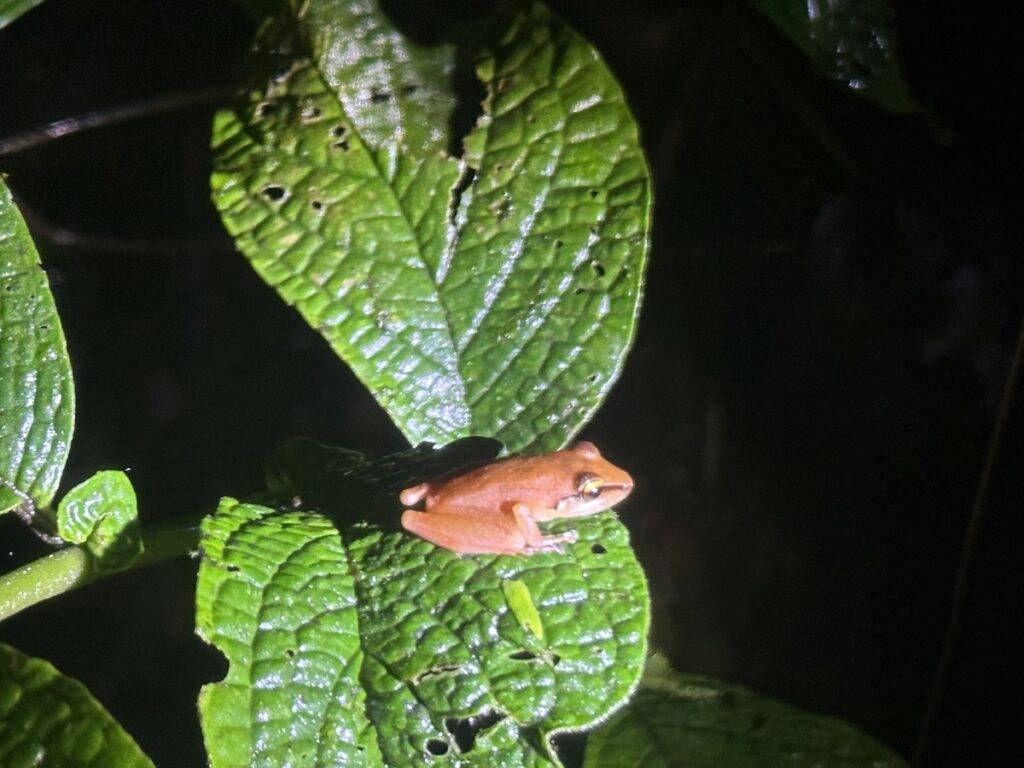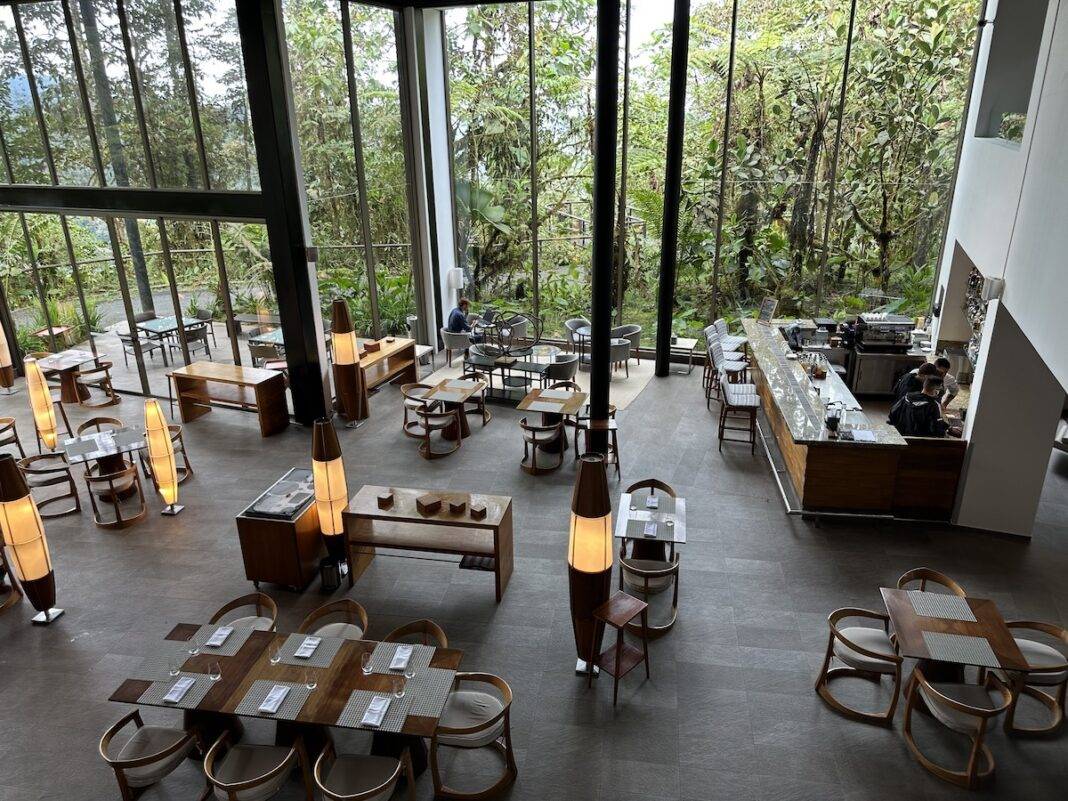Even before the Mashpi lodge was constructed, staff biologists were creating a conservation strategy — and discovering unheard-of species.
One night while walking through the Ecuadorian cloud forest, biologist Carlos Morochz heard what sounded like a cricket. But because crickets aren’t typically out at midnight, Morochz suspected he was hearing the call of a new-to-science species. “He knew it was a frog,” Mateo Roldan, head of research and biology at Mashpi Lodge, tells our group. “So from that moment when[ever] he heard the call, he continued looking, looking, looking.” It took five years but biologists confirmed that the sound was indeed coming from a frog, which they caught by climbing into the tree canopy. And a DNA test revealed that it was a new species.
Before construction on the ecolodge even started, the owners hired the first biologist, Roldan tells my group when we visit his lab. Mashpi traces its roots back to 2001, when businessperson and former Quito mayor Roque Sevilla bought a section of the Ecuadorian Choco forest to protect the region’s biodiversity from gold mining and further deforestation. By 2010, he decided to make the private reserve accessible to the public by creating a luxury ecolodge.
Since then, tourism and biology have grown, entwined together. Mashpi biologists have discovered six new animal and seven new plant species. Some are sexier than others — people tend to get more excited about frogs and orchids than fungi — but all have their place in this extremely dense and complicated cloud forest ecosystem. Both the inhouse and visiting biologists have published many papers deriving from Mashpi researching, furthering scientific knowledge.
Mashpi is an interesting beast where upscale tourism meets serious science. It’s a three-hour drive from Quito, depending on traffic. The bumpier the road gets, the closer you are to Mashpi. The ecolodge itself is a tiny dot in the 7,000-acre surrounding reserve. Before the lodge was built, loggers were cutting down trees here. Now the owners preach sustainable agriculture and try to persuade farmers in the surrounding area to refrain from pesticide use.

Of course, not everybody is onboard the eco express. The biology staff are alert to illegal logging and poaching of endangered animals. They use the Forest Guardian bioacoustics system where recycled, solar-powered cell phones fitted with artificial intelligence alert them to illicit chainsaw activity. So far, it has worked well, except when somebody deforested an area using a machete. A series of wildlife trail cameras help biologists monitor less-seen creatures, such as the five stealthy feline species that roam Mashpi.
Part of what changes local people’s minds about the importance of sustainability and conservation is that Mashpi employs most of its workers from villages and towns within a 30-mile radius. Even those who don’t work directly for the ecolodge may benefit, as the lodge buys granola, jams, and other products from local entrepreneurs. There’s still a hierarchy difference; it’s virtually impossible to find the skill set for positions like hotel managers and chefs close by. But at least one local guy so far has worked his way up to the managerial level via on-the-job training. “There’s a strong slide toward urban migration,” says Dominic Hamilton, director of communications for Metropolitan Touring, which now owns and operates the ecolodge. “Projects like Mashpi are important because if we can employ and train more people to be able to have livelihoods in the northwest and keep them there, that’s better for the city of Quito as well.”
Visitors pay up to $1,500 per room — including full board, transfers from Quito and most activities — to enjoy the beauty of the cloud forest. Ecuadorians pay around $600 — a much lower, but still exorbitant rate for a poor country. These hefty fees make biological research possible. But for this science nerd, there’s little better than prowling the cloud forest with a guide spotting tiny glass frogs clinging to the giant leaves of an umbrella plant. Bliss.


